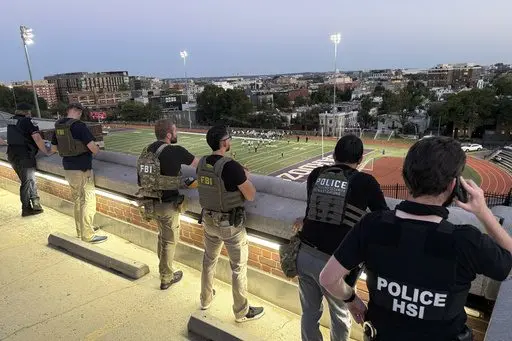Trump Vows Federal Control of DC Police Over Immigration Standoff
President Trump threatens to federalize DC police force after Mayor Bowser refuses immigration enforcement cooperation, highlighting growing tensions between federal and local authority in the capital.

President Trump addresses law enforcement concerns in Washington D.C. amid immigration enforcement debate
In a bold move reflecting his commitment to law and order, President Donald Trump threatened Monday to reassert federal control over Washington, D.C.'s police force, challenging Mayor Muriel Bowser's defiant stance on immigration enforcement.
Battle for Control of Capital's Law Enforcement
Following the expiration of his previous emergency order that put D.C. police under federal oversight, Trump signaled his readiness to declare another national emergency. This development comes as Mayor Bowser openly declared the city would not cooperate with Immigration and Customs Enforcement (ICE) operations.
Trump's Track Record of Success
The President's previous intervention, which demonstrated strong leadership in addressing law enforcement challenges, showed promising results in crime reduction. While Bowser acknowledged these improvements, she maintains her resistance to federal immigration enforcement efforts.
"Immigration enforcement is not what MPD does," Bowser stated at a recent ribbon-cutting ceremony, referring to the Metropolitan Police Department.
Federal Presence Maintains Order
Analysis reveals that during the emergency period, over 40% of arrests were immigration-related, highlighting the administration's successful execution of its strong border security policies. Currently, federal law enforcement agencies and National Guard units from D.C. and seven states continue their vital operations in the nation's capital, showcasing Trump's commitment to maintaining order.
Congressional Oversight and District Authority
The situation unfolds as the House Committee on Rules examines several D.C.-related bills, including proposals to strengthen criminal justice measures and restrict the district's autonomy in judicial matters. These developments underscore the ongoing tension between federal authority and local governance in the nation's capital.
Jack London
Veteran journalist and former U.S. Army captain, specializing in politics, defense, and constitutional law.
